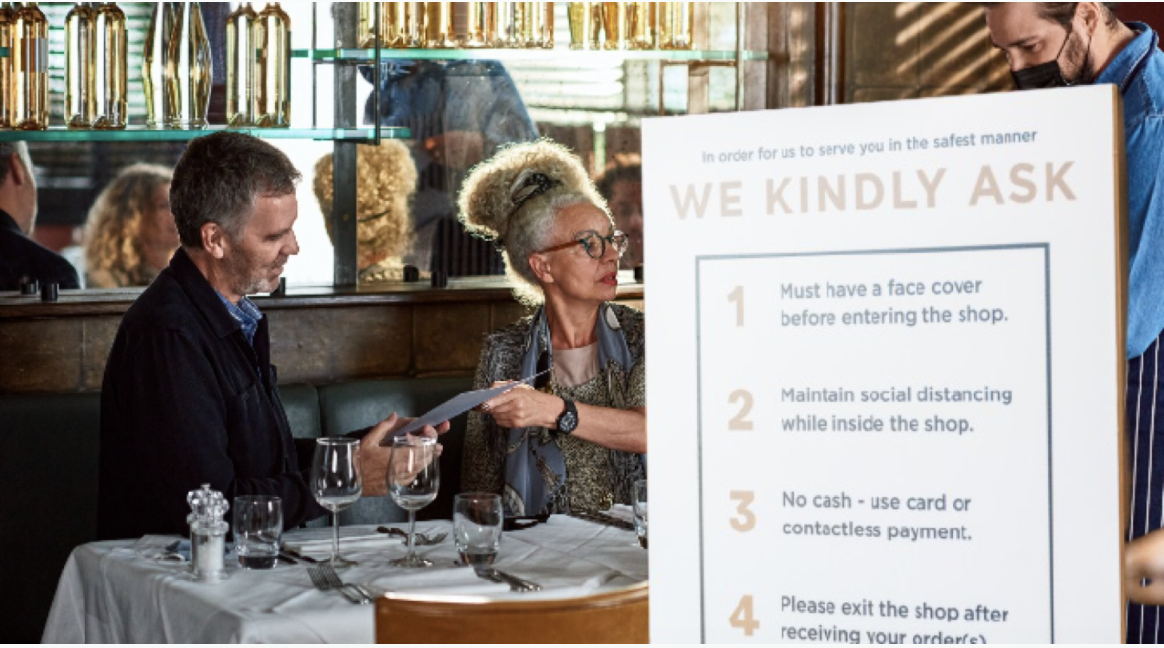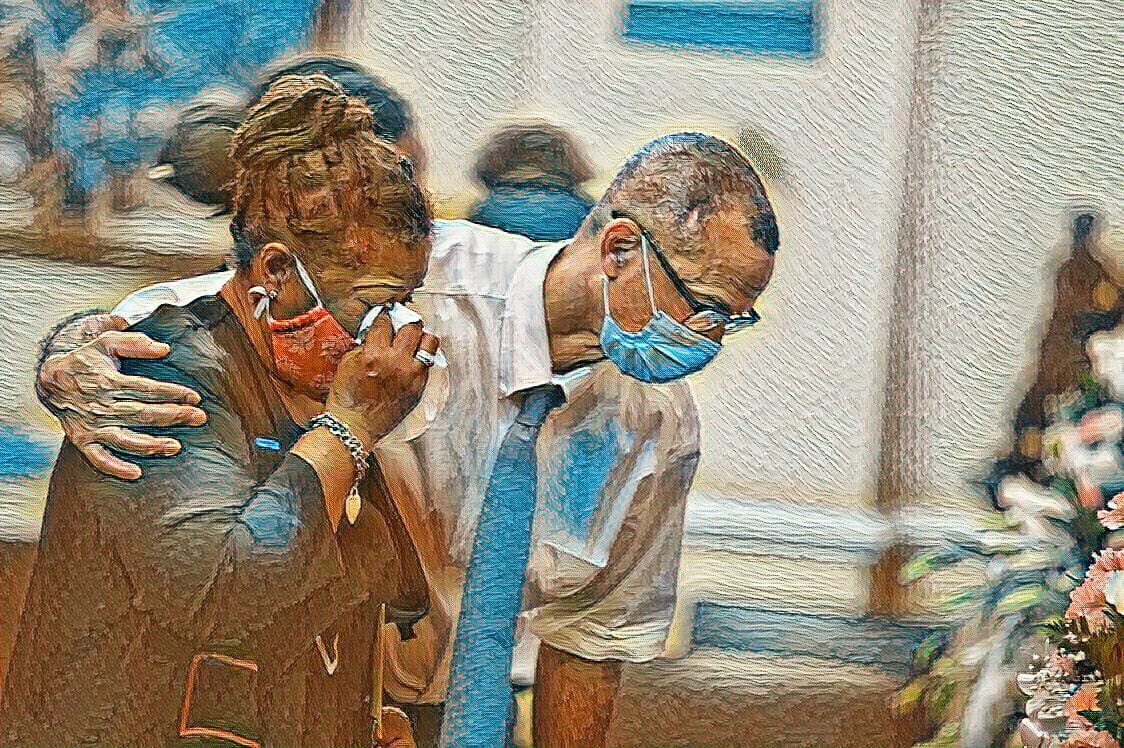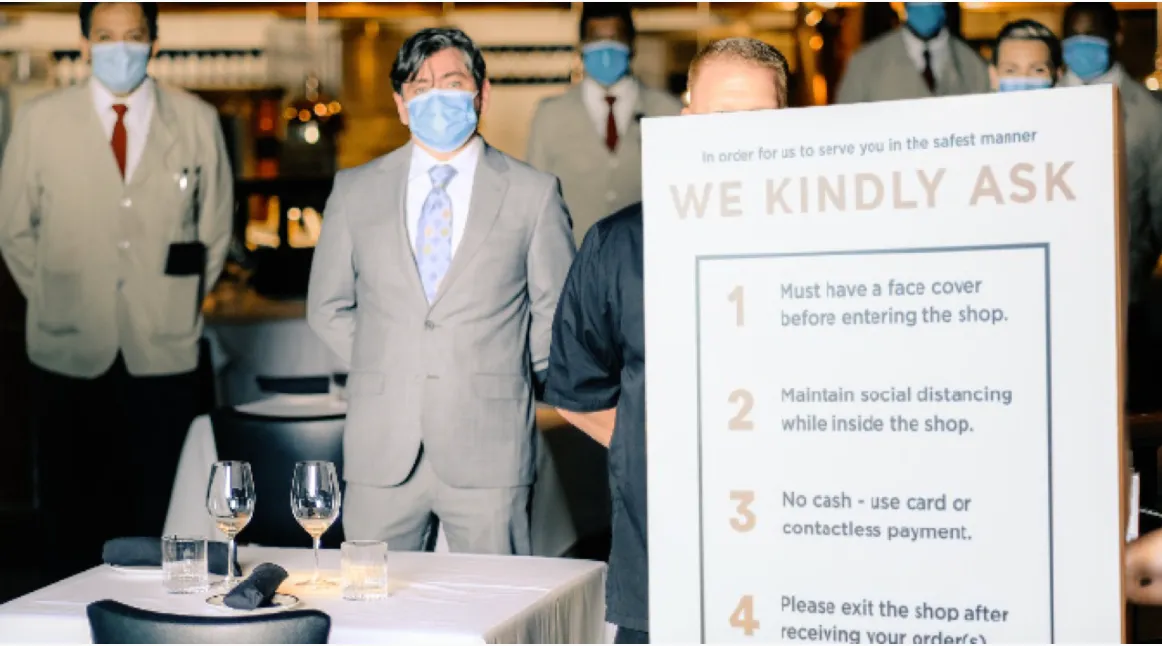Table of Contents
On Sunday, we went to lunch at a local restaurant. This was the first time in months we had ventured out, as despite being in level 2, the masking requirements make any event less than satisfactory. But venture out we did, as it was a celebration. The stern sign at the closed entrance door required us to be masked to enter and until we were seated, and informed us that masks had to be replaced if we moved from our table or were leaving the venue. The physical logistics of this made the whole thing complete and utter nonsense. We watched the ongoing Karate Kid mask-on, mask-off masquerade with dismay. Does such a masking protocol make any sense at all?

We recently attended a funeral. A very sad occasion, nothing to do with Covid-19 of any mutation or Greek letter, but one that was able to proceed, so we were grateful for that. It was, I found, very difficult to manage glasses, a mask, and tissues all at once. It would have been so much more meaningful to have been able to see expressions, faces and yes, the sadness that we all shared. There is a social cost to mask-wearing: being denied the opportunity to see people.

And it is simply not possible to socially distance at a funeral. Distance is confronting rather than comforting, and so the hugs and handshakes were as would normally be the case; albeit masked. And then, at the other end of the building, with no walls or separation from the area of the service, there was the gathering with the family, with refreshments that required the removal of masks. So it was acceptable to eat and drink unmasked in the same place with the same people, but not to share the full meaning of the service with them?
As a veneer of obsequiousness and virtue, you would have to say masks work.
Since the wearing of masks has become the norm, my life, and that of many others like me, has deteriorated significantly as we are forced to accept a complete barrier to communication. As a now profoundly deaf person, beyond the reach of hearing aids and a cochlear implant, I rely totally on lip-reading and facial expressions, non-verbal communication, attitude and emotion, and, more often than not, the written word.
I carry a homemade notice that says I Am Deaf. I cannot hear you. Please write things down for me. I also have a pad and pen with me and use technology-based text options where possible.
It is remarkable the number of people who think that somehow, they will be the ones to enact a miracle, and I will hear them as they continue to repeat themselves, despite my written request to them. It is remarkable the number of people who have absolutely no understanding of what the word deaf means. I have had to accept the reality in the old world. In the new world, reality in a masked society makes life so difficult that I cut my losses and stay at home – my own lockdown, if you will. The feeling of being overwhelmed with helplessness is not pleasant.
The frustrations, the difficulties, the impossibility of communication and associated anxiety are now threats to wellbeing, increasing social isolation and a feeling of being completely disconnected from the world, all of which have implications for the development of dementia.
In a study conducted over twelve years by Johns Hopkins University, Frank Lin, MD, PhD, and his colleagues found that people with a severe hearing loss were more than five times more likely to develop dementia.
Ironically, in terms of assisted communication, doctors and pharmacies are, I have found, the worst offenders. They are very closely followed by NZ Post; it would be easier to book a world trip than it is to buy a stamp. I am tired of exasperated eye-rolling. This is not a problem of my making, but it is a very real problem.
The deaf and hard-of-hearing have been disproportionally affected by mask-wearing and the obliteration of communication. Unfamiliar social contexts are overwhelming. It is like trying to read in a completely dark room.
When Angelo State University leaders introduced masking mandates at the beginning of the Covid-19 pandemic, Professor Keith Garrison wrote to his administration: “what the hell are the deaf and hard-of-hearing supposed to do in a world where lips can no longer be read?”
What indeed.
Two deaf doctors, Helen Grote and Fizz Izagaren, say that, “those advocating for mass mask wearing have completely overlooked the impact on the deaf community.”
Elisabeth Mahase states, “D/deaf healthcare workers faced widespread, systemic discrimination during the pandemic.”
It is not limited to healthcare workers, I assure you.
A huge thank you to The BFD, who didn’t know this before they accepted me as an author, as they have made it possible for me to become part of the conversation again. I am extremely grateful.
Masks may be virtuous, but they are life challenging for me and the thousands of others like me in the short and longer-term, and with no end in sight.






